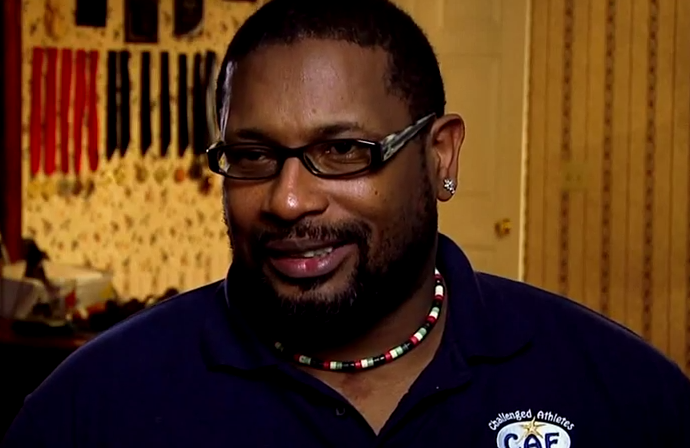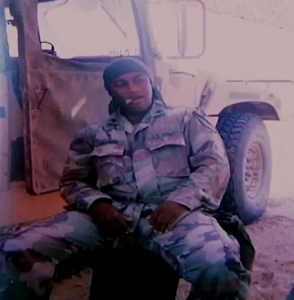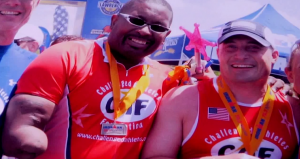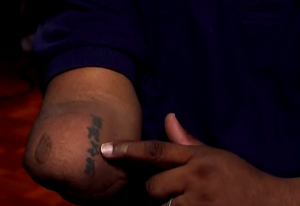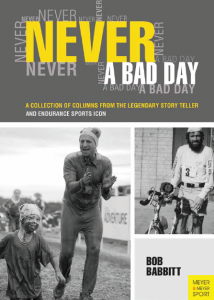The date was April 4, 2004. Camp Taji is located 30 miles north of Baghdad, Iraq. Army Major Anthony Smith, a former scholarship athlete at Alcorn State University in Lorman, Miss. in football, basketball and track, was part of the 1st Calvary Division, 39th Infantry Brigade Combat Team. “We were a special operations group that made sure supplies were where they were supposed to be,” Smith says.
Smith’s unit was attacked and he suffered a direct hit from an RPG, a Rocket Propelled Grenade. “It hit me on the right side of my body and I ended up with a traumatic brain injury, blindness in my right eye, right kidney failure, hearing loss in my right ear, my jaw was broken in four places, my nose was broken in two places, I lost my right arm, my right hip, half my femur, my quad and back muscles, the large intestine, a portion of the back of my skull and part of my colon,” he says.
At first they couldn’t find Smith. He was listed as missing. When they did find him, his heart flat-lined. Check that. It flat-lined three times. “They listed me as killed in action,” he says calmly.
It obviously takes a lot more than a Rocket Propelled Grenade to stop Mr. Smith. After being declared dead, Smith was placed in a body bag. When a nurse unzipped the bag to get his dog tags, Smith sat up. “The nurse ran over to the doctor who told her ‘Well, bodies move sometimes’” Smith was told. “Then she told him that I was talking and asking for help.”
Since he had been declared Killed in Action, Smith’s records had been sent ahead and no one knew his blood type. They gave him B positive rather than B negative. He immediately went into shock and doctors induced a coma that lasted 62 days.
Smith came out of the coma at Brooks Army Hospital in Texas. “When I woke up, two nurses and a doctor were there. They didn’t know I was awake. They said I would never walk, see or speak again and that someone was going to have to take care of me.”
Anthony Smith had always been a man of faith. “I think what separates me from other people is that I knew there had to be a reason I survived,” he says. Smith ballooned up to over 300 pounds and was smoking three packs of cigarettes a day while trying to figure out his purpose.
He realized he wanted to be an athlete again. It started with swimming and then he began to ride a bike. In 2009, with a prosthetic arm, he rode 420 miles during a San Francisco to San Diego bike tour. “At 246 pounds, the Big Sur stage was tough for me, so I rode in a car that day,” he admits. He walked his first 5K in 1:36. This fall he walked his second in 56:10
But his heart is in martial arts. A man who was declared dead, who flat-lined three times and was in a body bag, now owns Anthony’s Martial Arts Academy in his home of Blytheville, Ark. “I have over 300 members now,” he says proudly. “I love teaching kids.”
While in the hospital, he remembers the doctors saying they were going to amputate his leg. His arm was already gone. “I thought they had saved my arm,” he remembers, “so I told them not to take my leg.”
What they had saved was the tattoo that had been on his arm. They doctors cut off the arm below the tattoo and lifted the skin over the bone. “So my tattoo stayed,” Smith says with a smile.
The tattoo, written in Korean, perfectly sums up the man.
It says, ‘Don’t ever give up.’
Watch the Challenged Athletes Foundation video profile on Anthony Smith:
A Real Keeper appears in my book, Never a Bad Day


